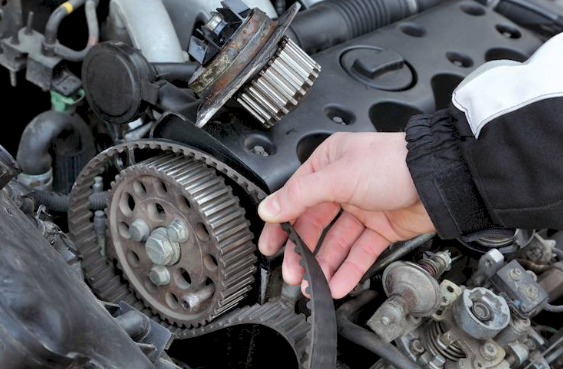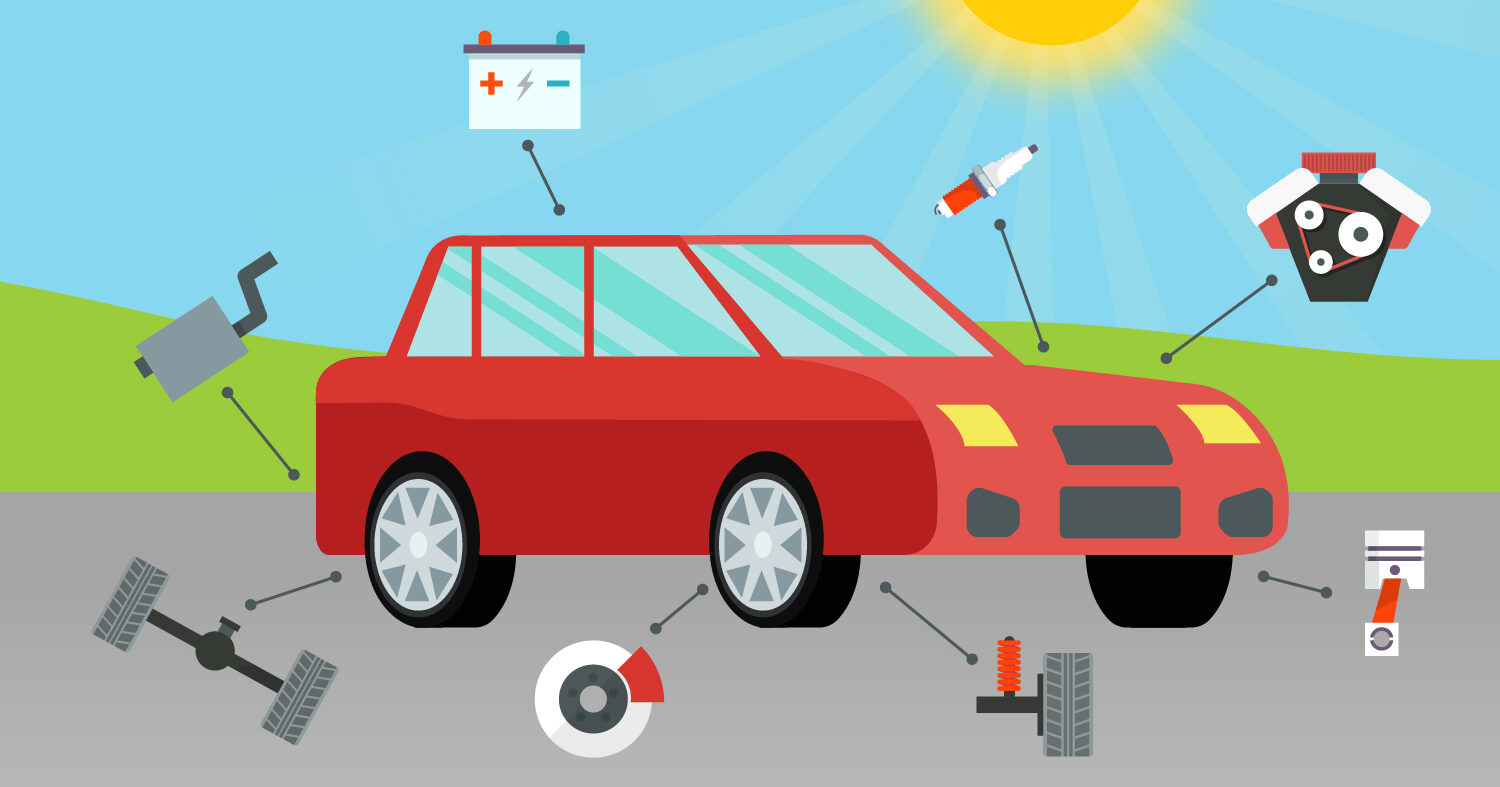Timing belt repairs are crucial to the longevity and performance of your vehicle, and addressing them promptly can save you from costly repairs or even a complete engine failure. Here’s why timing belt repairs should be a priority in your vehicle maintenance plan:
1. Essential for Engine Function
- Why It Matters: The timing belt controls the synchronization of the engine’s crankshaft and camshaft(s), ensuring that the engine’s valves open and close at the proper times during the combustion process. If the timing belt fails, the engine’s internal components can collide, resulting in severe damage.
- Consequence of Delay: If the timing belt breaks while the engine is running, it can cause catastrophic damage to the engine. This could lead to bent valves, damaged pistons, or a ruined engine, which would require expensive repairs or even a full engine replacement.
2. Prevent Major Engine Damage
- Why It Matters: A timing belt that wears out or fails will cause the engine to run poorly or, in some cases, stop running altogether. In interference engines (common in many vehicles), a broken timing belt can cause the pistons to collide with the valves, leading to extensive damage.
- Consequence of Delay: If the belt is not replaced in time, you risk serious damage to the engine, which may be far more expensive to repair than just replacing the timing belt itself.
3. Cost-Effective Preventative Maintenance
- Why It Matters: Replacing a timing belt is a relatively affordable preventative maintenance task compared to the cost of repairing engine damage caused by a failed belt. The cost of replacing a timing belt varies but typically ranges from $300 to $1,000, depending on your vehicle’s make and model.
- Consequence of Delay: If the timing belt fails, the cost of repairing the engine can easily run into the thousands of dollars. A proactive timing belt replacement is far less expensive and can help avoid these larger, unforeseen repair costs.
4. Vehicle Reliability and Performance
- Why It Matters: A well-maintained timing belt ensures that the engine operates smoothly and efficiently. When the timing belt starts to wear, it may affect the engine’s timing, leading to poor performance such as rough idling, engine misfires, or difficulty starting the vehicle.
- Consequence of Delay: Delaying timing belt repairs can lead to decreased engine performance and fuel efficiency. A poorly timed engine can result in sluggish acceleration and a less responsive driving experience.
5. Manufacturer’s Recommendations
- Why It Matters: Vehicle manufacturers typically specify the recommended interval for timing belt replacement, often between 60,000 to 100,000 miles (or about 6 to 10 years). Adhering to these guidelines is essential for maintaining the warranty and avoiding engine damage.
- Consequence of Delay: Ignoring the manufacturer’s recommended service interval increases the risk of a timing belt failure and voids any warranty or maintenance agreements that might be in place.
6. Avoiding Stress and Inconvenience
- Why It Matters: Waiting until the timing belt fails can leave you stranded, possibly in an inconvenient or dangerous situation. A broken timing belt often occurs without warning, and depending on your location, it could result in a costly tow and unexpected downtime.
- Consequence of Delay: A timing belt failure can cause significant disruption, leaving you without transportation and forcing you to deal with a costly, time-consuming repair process. Regular maintenance minimizes the chances of being caught off guard.
7. Preserving the Value of Your Vehicle
- Why It Matters: A vehicle with a well-maintained engine is more reliable and retains a higher resale value. Buyers are often wary of purchasing cars that may soon require costly repairs, especially if they know the timing belt is overdue for replacement.
- Consequence of Delay: If the timing belt isn’t replaced on time, it could result in engine failure, which drastically reduces the vehicle’s resale or trade-in value. Prospective buyers may hesitate to purchase a car with known timing belt issues, even if the car is in otherwise good condition.
8. Peace of Mind
- Why It Matters: Knowing that your timing belt is in good condition gives you peace of mind while driving. It helps you avoid the stress of worrying about potential breakdowns and costly repairs, allowing you to enjoy your vehicle’s performance with confidence.
- Consequence of Delay: Procrastinating on timing belt repairs increases the likelihood of unexpected engine issues. This can result in stress, frustration, and inconvenience when the timing belt inevitably fails.
9. Impact on Other Components
- Why It Matters: The timing belt often works in conjunction with other essential components such as the water pump, tensioners, and pulleys. During a timing belt replacement, many mechanics recommend replacing these parts as well, which helps ensure the system runs smoothly.
- Consequence of Delay: If the timing belt wears out prematurely, other associated parts may also be compromised, leading to additional repair costs.
10. Timing Belt and Engine Type Considerations
- Why It Matters: Timing belts are crucial for engines with overhead camshaft designs, known as “interference engines,” where the pistons and valves occupy the same space in the cylinder. If the timing belt breaks, the pistons and valves can collide, causing serious damage. Non-interference engines may still face operational issues, but the damage is typically less severe.
- Consequence of Delay: In interference engines, a timing belt failure can lead to major damage, making it even more important to replace the timing belt on schedule to prevent expensive repairs.
Conclusion:
Timing belt repairs should be a priority in your vehicle maintenance plan because a failure can lead to costly engine damage, poor vehicle performance, and unexpected breakdowns. By replacing the timing belt at the manufacturer-recommended intervals, you help ensure your vehicle runs smoothly, maintain its resale value, and avoid expensive repairs. Regularly maintaining and monitoring the timing belt will ultimately save you time, money, and frustration, keeping your car reliable for years to come.
















